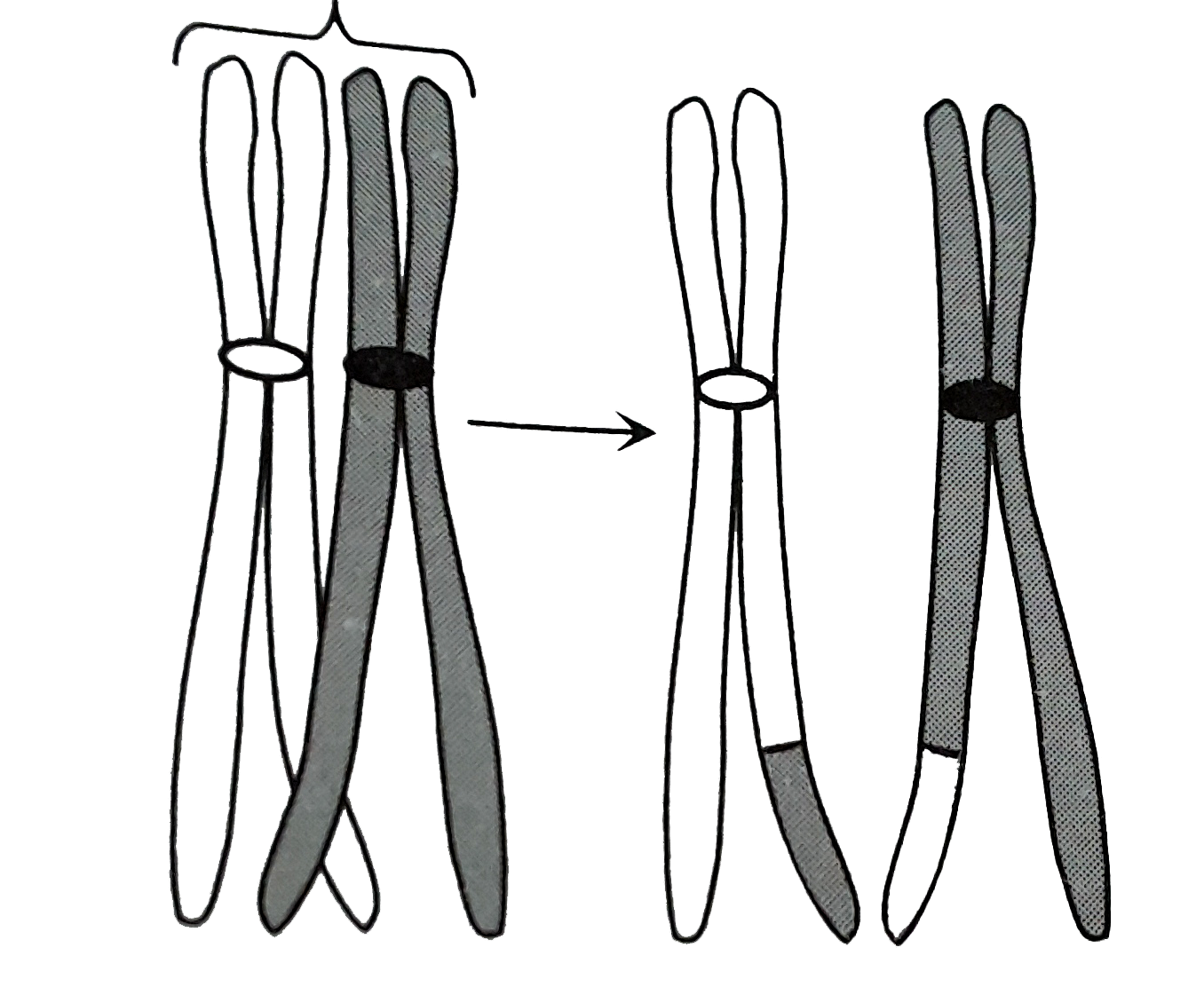The complex formed by a pair of synapsed homologous chromosomes is called
1. equatorial plate
2. Kinetochore
3. bivalent
4. axoneme
A stage in cell division is shown in the figure. Select the answer which gives correct
identification of the stage with its characteristics.
| 1. | Telophase - Nuclear envelope reforms, Golgi complex reforms |
| 2. | Late anaphase - Chromosomes move away from equatorial plate, Golgi complex not present |
| 3. | Cytokinesis - Cell plate formed, mitochondria distributed between two daughter cells |
| 4. | Telophase - Endoplasmic reticulum and nucleolus not reformed yet |
During gamete formation, the enzyme recombinase participates during
1. Metaphase-I
2. Anaphase-II
3. Prophase-I
4. Prophase-II
Given below is the representation of a certain event at a particular stage of a type of cell division. Which is this stage?

1. Prophase-I during meiosis
2. Prophase-II during meiosis
3. Prophase of mitosis
4. Both prophase and metaphase of mitosis
Select the correct option with respect to mitosis.
1. Chromatids start moving towards opposite poles in telophase
2. Golgi complex and endoplasmic reticulum are still visible at the end of prophase
3. Chromosomes move to the spindle equator and get aligned along equatorial plate in metaphase
4. Chromatids separate but remains in the centre of the cell in anaphase
Given below is a schematic break-up of the phases/stages of the cell cycle
Which one of the following is the correct indication of the stage/phase in the cell cycle?
1. B-Metaphase
2. C-Karyokinesis
3. D-Synthesis phase
4. A-Cytokinesis
The drug colchicines, used to obtain polyploidy cells, acts on the cytoskeletal structures of
the plant cells called
| 1. | microtubules |
| 2. | actin filaments |
| 3. | intermediate filaments |
| 4. | all of the above. |
Astral rays arise from
| 1. | centriole | 2. | cytoplasm |
| 3. | chromatid | 4. | centromere. |
Number of mitotic division required in a cell of root tip for formation of 128 cells is
1. 12
2. 3
3. 7
4. 6
Barr body is found in the cytoplasm during
| 1. | interphase in cell of female mammal. |
| 2. | interphase in cell of male mammal. |
| 3. | prophase in cell of female mammal. |
| 4. | prophase in cell of male mammal. |








